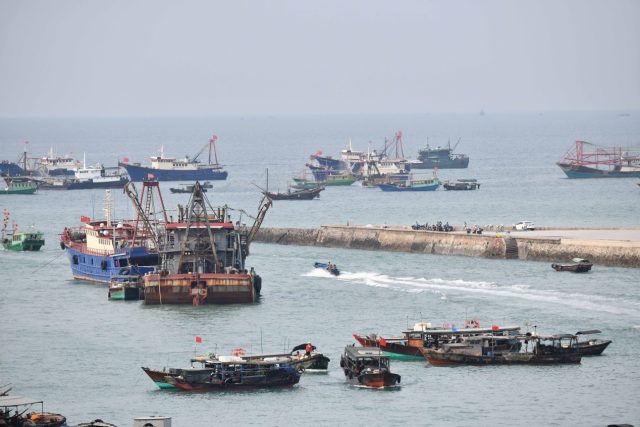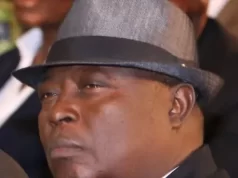The Centre for Maritime Law and Security (CEMLAWS), in partnership with the University of Cape Coast and Centre for Costal Management (CCM) has organised a workshop for stakeholders in the fishery industry to address distance water fishing vessels.
The workshop, funded by the United States Department of State, was to promote transparency, accountability and build local capacity to address the destabilizing impacts of foreign distance water fishing vessels.
The stakeholders involved at the workshop include the Ghana Port and Harbor Authority, participants from CCM, fisheries commission and professors
from the University of Cape Coast.
Dr Kamal-Deen Ali, Retired Naval Captain, CEMLAWS, speaking to the media, said the pilot training project was on Monitoring, Control and Surveillance (MCS), hence, building the capacity of stakholders was important for effective monitoring and surveillance.
He said the purpose of the MCS was to ensure that fishery management measures were implemented fully and expeditiously, encouraging compliance rather than demanding enforcements.
Mr Ali said in order to govern and manage distance foreign water vessels, personnels in the sector must be regulated, equipped and be abreast with legal and jurisdictional regulations.
Speaking on capacity building, he said the project had trained journalists and civil society across various African countries, including Benin, Cameroon, Cote d’ Ivoire, Ghana, Mauritania, Senegal and Sierra Leone.
However, he called for collaboration and implementation of policies to be able to govern the maritime environment, “legislation and institutions must work hand-in-hand to manage the resources effectively”.
Dr Ali said Ghana had not harnessed the options available in the fishery area, making it lagged behind in-terms of sustainability, food security and loss of resources.
He said one key reason for decline in the fishery sector was due to 80 per cent exportation of raw materials to other countries, causing a loss of output from the country.
He said Ghana must ensure foreign vessels were registered and licensed at the Office of the Registrar of Companies (ORC) to ensure their reflection of profits.
Professor, Denis Aheto of CCM urged participants to build their capacity by applying for scholarships to study abroad to improve Ghana’s quality control and surveillance.
“This maritime area is a very sensitive subject so we must upgrade ourselves by continued learning and research”, he added.
Participants were trained on maritime jurisdictions, balancing legal rights, interest power, exclusive economic zones, thus, freedom of navigation and over flight, and sovereign rights for exploitation and the management of living and non-living resources.
They were also trained on institutional frameworks that cover national, regional, bilateral and multilateral arrangements.

















